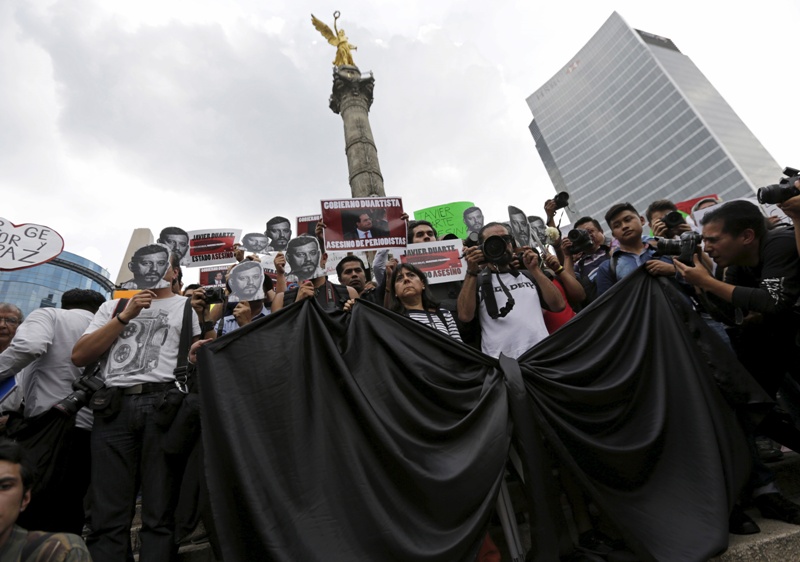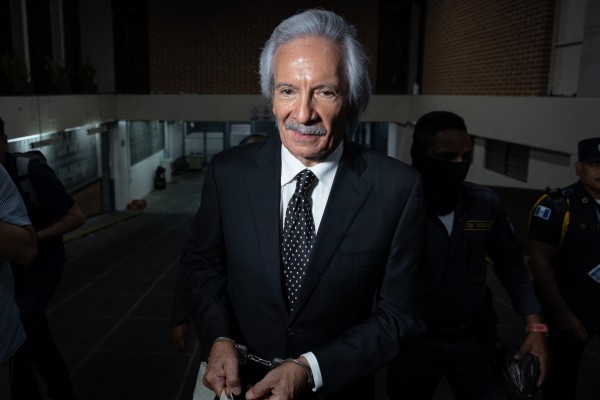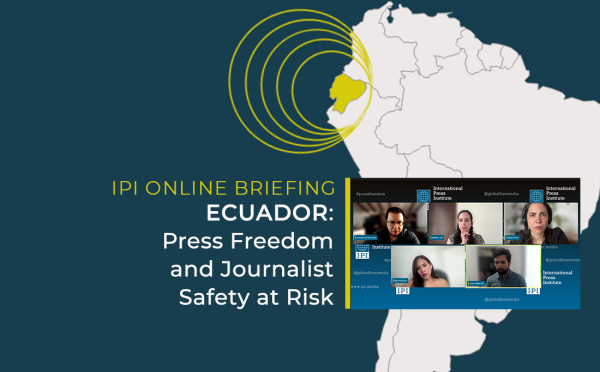The International Press Institute (IPI) today condemned the killing of a Mexican photojournalist who appeared to have been tortured before being shot in the head in Mexico City.
Ruben Espinosa, a photojournalist from the Gulf Coast state Veracruz, was found late on Friday with severe injuries to his face. The journalist fled Xalapa, capital of Veracruz, in June to escape harassment, surveillance and threats. Espinosa had worked in the state for eight years, at times for prominent news magazines Proceso and Cuarto Oscuro.
IPI urged Mexican authorities to investigate thoroughly the likely possibility that the journalist’s death was related to his work and to bring those guilty of the killing to justice.
Espinosa is believed to be the first journalist to have been killed after seeking refuge in Mexico City.
Three women and a housekeeper who lived in the apartment with Espinosa were found tied up and shot along with the journalist.
Although Mexico City prosecutor Rodolfo Rios Garza claimed he was pursuing all lines of investigation, he did not acknowledge that Espinosa had fled Veracruz after receiving threats. Rios instead said that the journalist had come to Mexico City to search for work. Rios also included robbery as a potential motive for the crime.
“The torture and killing of Ruben Espinosa and four others is appalling in its barbarity, even for Mexico, where scores of journalists have been the victims of brutal violence in the last decade” IPI Director of Advocacy and Communications Steven M. Ellis said. “The vast majority of these killings remain unsolved and authorities’ failure to protect journalists under threat and to find their killers only enables impunity by demonstrating that those who wish to silence journalists can do so without consequence.”
Espinosa had encountered intimidation before June. At a student protest in 2012, a plainclothes policeman reportedly grabbed Espinosa and demanded that he stop taking photos unless he wanted to end up like Regina Martinez, a journalist killed in Veracruz earlier that year. After a separate incident, in which state police allegedly beat Espinosa, Veracruz governor Javier Duarte de Ochoa offered the journalist money to drop a complaint.
Duarte in June accused some reporters of involvement with organised crime, commenting that freedom of expression should not be confused with “representing the expression of criminals via the media”.
Dario Ramirez, director of Article 19, said that Espinosa had not sought official protection after receiving threats but had relied on agencies like Article 19 and on his friends.
Mexico is one of the most dangerous countries for journalists and Veracruz is an especially deadly state. Twelve of the at-least 54 journalists who have lost their lives in connection with their work in Mexico since December 2006 – when Mexico’s military intervened in the government’s struggle with powerful drug cartels – died in Veracruz.
A blogger was found dead in the state early last month and in May, a radio presenter who had been kidnapped in Veracruz was found dead in the neighbouring state of Oaxaca. Both cases remain unsolved.



